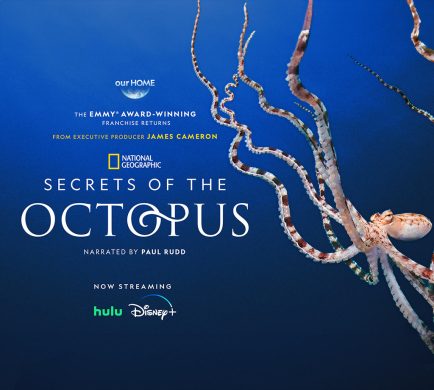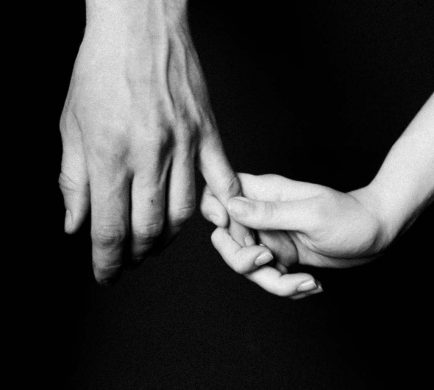I view Autism as if it is an enhancer plugged into my brain, enhancing my perception in life, thereby making things very easy or very hard. Autism has given me a different lens through which to view the world.
When I was three, I was diagnosed with a speech delay and was consequently enrolled in the Preschool Intervention Program later that year. This followed three years of special day classes, in the middle of which I got further tested and formally diagnosed with “Asperger’s Syndrome” under DSM IV. (Nowadays, “Asperger’s” is no longer a diagnosis, but simply “Autism.”) I was mainstreamed in third grade and was placed in regular classrooms.
Throughout my years in elementary school, I was trying to figure out why I felt so different from most of my classmates and why some of them treated me badly. In kindergarten, a couple of classmates yelled at me to go away and that I was not their friend. As I got older, several students wanted me to go away, one of whom resorted to chucking a handball at my face. Another student called me the same name incessantly. These early recollections lived with me as I grew older.
Why? I never did anything wrong to them.
By middle school and onward, the amount of discrimination significantly subsided.
At the same time, I was very shy. I waited for my friends to come to me themselves. I made hundreds of friends by high school graduation, but alas, I rarely spent time with them. In junior year, I tried my hardest to gain the confidence to put my foot forward. It helped a little.
I had other struggles, such as a lack of concentration. It is hard to shut my mind off when I am trying to read, take an assessment, do homework, and go to sleep at night. In all my school years, I had pull-outs for speech therapy and R.S.P. (Resource Specialist Program).
My mother was a number-one advocate for me to my teachers, and my teachers were very supportive of me, helping me fit in. My mother taught me a lot of skills, from calligraphy to cooking, to driving, to balancing a checkbook. My high school R.S.P. teacher helped us become our own advocates, speaking up for ourselves. This significantly prepared me for college and adulthood.
I spent five years attending Orange Coast College, eventually getting an Associate of Science degree in chemistry. I spent the next two years at Vanguard University, finishing my undergrad and obtaining a Bachelor of Science in biochemistry. While attending these two institutions, I made more friends, had professors who cared about me and had accommodations to help me succeed.
After completing my undergrad, I enrolled in Vanguard’s credential program and became a student teacher. I student taught Enhanced Mathematics at my former middle school, Ensign Intermediate, of Newport-Mesa Unified School District. Less than three months after beginning my student teaching experience, I became a substitute teacher for days I was not student teaching. It soon became my daily motivation. It brought me joy each day to enter a classroom to either student teach or substitute teach. To date, I have substituted in over twenty schools around NMUSD and am usually begged by several dozen students to come back. Teachers whom I subbed for frequently tell me how much their students liked me and want me to come back. While I substitute teach, I reward their good behavior with “magic” tricks and juggling.
From elementary school to the present day, I continued to develop skills with which to entertain people and ultimately make a difference in their lives. In third grade, I started practicing piano. In fifth grade, I began juggling. I began juggling at my local elementary school in my sophomore year and have since performed at assemblies and events. In 2018, I developed my juggling analogy. If you make a small mistake or a big mistake in life, and something drops
(at this point, I drop one on purpose), do not give up. Bend down, pick it up, and keep going, and you will do amazing things.
As a person with Autism, I can testify how easy it is to be frightened and angry inside, accumulating many things, such as stories of discrimination, being teased, or wishing something happened better. People with Autism, like me, might run into a room and stay there for a while. What we are doing is processing things by ourselves. These are times when we need to be alone, and it is a trait found in Autism. When the time is right, we will release the things that are troubling us. However, we might neglect to do so, leading to a depressing feeling of hurt and loneliness.
I was in high school when I began advocating for Autism Awareness and Acceptance, eventually appealing for everybody to put aside their differences and competition and come together. Nowadays, I ask people without “disabilities” to help those who do have a “disability” feel included. To accomplish this, talk with them and find out what they like to do. (I placed “disability” in quotes because a “disability” could be viewed as a “different ability” to live life.)
In my first semester of college in 2013, I began a new writing project which eventually – long story short (no pun intended) – led me to publish Juggling the Issues: Living with Asperger’s Syndrome at the age of 23.
With this book, I was able to encourage the entire world. I appeared on the news, radio, websites, magazines, and blogs (et cetera). At the same time, my social media accounts began to grow, with 80,000 subscribers on YouTube and a million followers on Instagram.
I count all of this as a tremendous victory for Autism. The reason why this is important to me is because my life has been quite a roller coaster. It was filled with love from family and friends, but it was simultaneously imbued with trials and tribulations. From 2014 to 2023, I still experienced discrimination. I have been yelled at many times by people in
vehicles just for walking around in public. I have been cussed at, stared at, laughed at, ran away from, followed by a vehicle, and was nearly beaten by a name-calling individual with his skateboard in 2022.
In 2020, I overheard a parent telling his child not to communicate with me, even though I was a distance away.
In 2015, I overheard a father tell his son I was a “weirdo” or something just for nonchalantly walking past them.
In 2017, a father expressed his annoyance with me just for walking down a public park. His young daughter got nervous about what he did. Two days thereafter, I was inside a Ralphs grocery market, and two teenagers were laughing and making fun of me. However, I later invited them to go ahead of me in line, to which their countenance expressed remorse for judging a book by its cover.
Nevertheless, I always kept these adversities from winning! I came to terms with my limitations, never allowing the label of “Autism” to limit me. I am currently working toward a Master’s in Education and ultimately starting a career as a middle-school math teacher.
I tell everybody that if I could do all the things that I could do – get a book published, earn a medal equivalent to the rank of Eagle Scout, get two science degrees, earn a full-math credential, become a substitute teacher who often hears “best sub,” become a social media influencer, play the piano, juggle, et cetera – then You Can Too, Plus More!
Everybody has a unique skill set and different levels of mastery per skill. In my Be Number One analogy, I tell several people to be number one. My definition of being number one is that you persevere on your goals and never give up on obtaining those goals. Be the best that you can be, setting standards on your own self.
I am a proponent of not just Autism Awareness but Autism Acceptance and Appreciation. This world will be better once everybody puts aside their differences and competitions, comes together, holds civilized conversations, and makes others feel included.
Disability or not, anybody can do whatever they set their heart and mind to do. Behind the disability, we have a heart.







